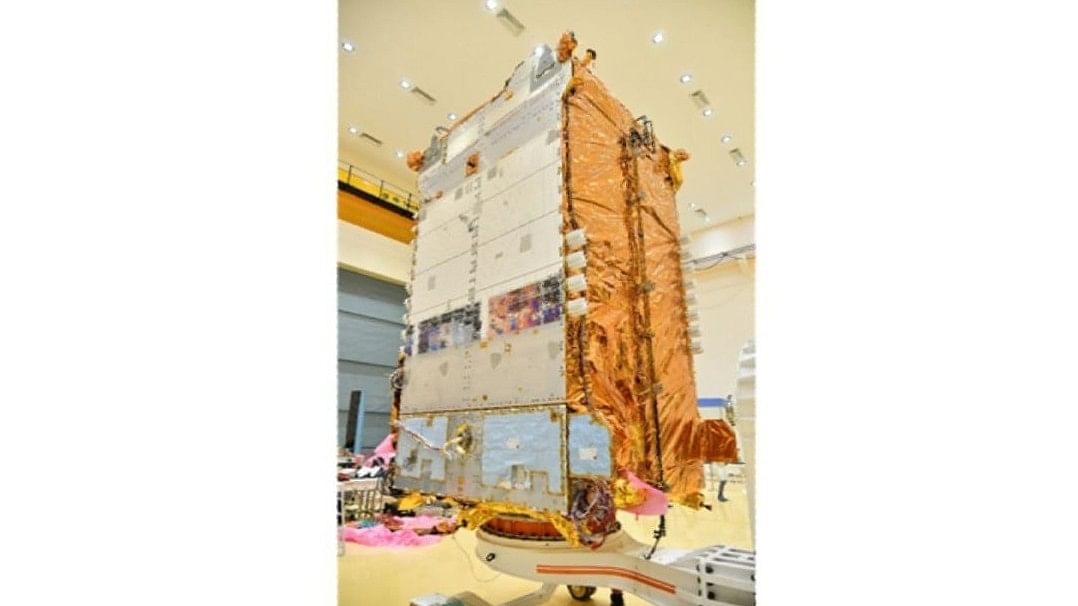
GSAT-N2 in the clean room
Credit: ISRO
Bengaluru: NewSpace India Limited (NSIL) is preparing for its second demand-driven satellite mission with GSAT-N2, a Ka-band high throughput communication satellite that is set to enhance broadband services and in-flight connectivity across the Indian region.
The mission by NSIL, the commercial arm of ISRO, is aimed at supporting a large subscriber base with small user terminals and designed to meet the service needs of remote regions. GSAT-N2 (originally named GSAT-20) has a lift-off mass of 4,700 kg and a mission life of 14 years. It comes with 32 spot beams – satellite signals transmitting to specific geographic areas – of which eight are narrow beams over the northeast region and 24 are wide beams covering the rest of India.
These 32 beams, generated by three 2.5-metre deployable reflectors in the payload, will be supported by hub stations that are located within mainland India. The Ka-band communication payload provides a throughput of approximately 48 Gbps. The satellite is compatible with all major launch vehicles.
Each Ka-band antenna is equipped with deployment and pointing mechanisms for in-orbit deployment and precise pointing of the antennae, ISRO said.
Launching on demand
NSIL’s demand-driven missions are in line with a series of reforms in the space sector announced by the Government of India that have enabled the agency to undertake projects that meet the service needs of users.
The first such mission was accomplished with GSAT-24, in June 2022, which had its onboard capacity fully secured by Tata Play.
In January this year, NSIL said it was eyeing a 2024 second-quarter launch for GSAT-N2, onboard a SpaceX Falcon 9. The agency said most of the high throughput satellite capacity was already secured by Indian service providers.